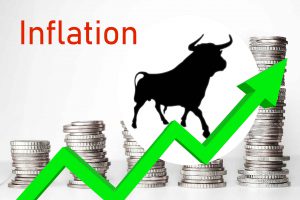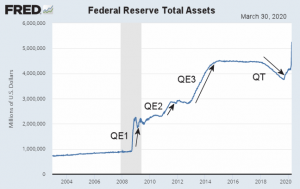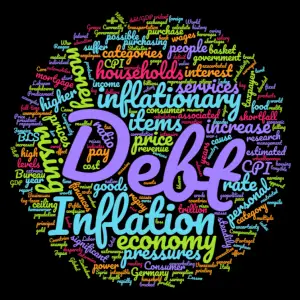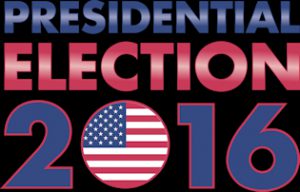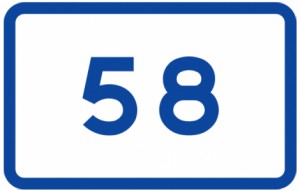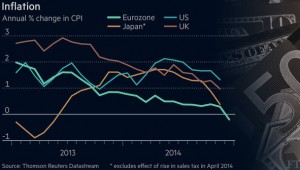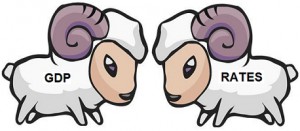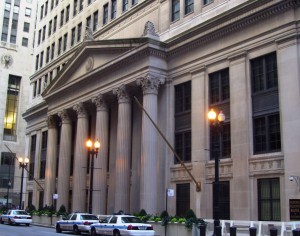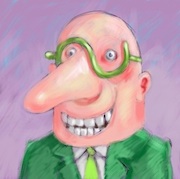Advocates of Keynesian economics believe the Federal Reserve should pursue policies that will prevent the possible decline of the economy into a liquidity trap. But what is a liquidity trap? Economic activity often is presented in terms of a circular flow of money. Spending by one individual becomes part of the earnings of another individual, and spending by another individual becomes part of the first individual’s earnings. Recessions, by this thinking, occur because consumers—for whatever reason—have decided to cut spending and increase their savings. For instance, if people become less confident about the future, they are likely going to lower their outlays and hoard money. … [Read more...]
When Is Inflation Good for the Economy?
Typically inflation and higher prices are considered bad, but occasionally they may be good for the economy... Inflation is one of the oldest concepts in economic theory, but experts still struggle to decipher its actual role in the market. It is often seen as a financial plague, which can ruin entire nations if it gets out of control. Price inflation means that prices have increased in the economy, usually due to monetary inflation, i.e., an increase in the money supply. Some of the most inglorious examples of hyperinflation are Germany in 1923, Greece in 1944, Hungary in 1946, Zimbabwe in 2008, and surprisingly the U.S. Confederacy during the Civil War. But proponents of inflation … [Read more...]
Inflation Expectations and the Massive Fed Stimulus
Inflation is loosely described as a general economic state of rising prices. In February 2020, the US inflation rate dipped from a high of 2.5% in January, to 2.3%. Assuming the standard of steadily increasing prices, driven largely by food, fuel, and living expenses, one can expect the inflation rate to tick higher. Forecasts for April 2020 are at 1.7%. Given that the major drivers of inflation are excess demand (demand-pull inflation), or cost-push inflation, current conditions based on Coronavirus quarantines have created a murky demand climate. Oil Prices and Inflationary Expectations All major US indices, including the Dow Jones Index, have plunged precipitously. Stock portfolios … [Read more...]
Debt and Inflationary Pressures: A Lesson in Economic Interactivity
Does debt cause inflation? If so what kind of debt? Personal debt? Government debt? Corporate debt? And what exactly is inflation? In this article, we will look at all these issues. Price Inflation occurs when the cost of a representative basket of goods and services is rising. The key factor is the general trend that takes place in an economy, it is possible that individual items such as foreign automobiles, the price of coffee, or corn could rise while other items that require a larger portion of your disposable income are falling (or vice versa). So the Bureau of Labor Statistics uses a "weighted basket of goods" i.e. they calculate what percentage of an average person's salary goes … [Read more...]
Inflation, Economy, and the US Election
One of the major factors affecting an election's outcome is the nation’s economy during the election year. In terms of trading and from an investment standpoint, financial security is a huge issue. But unlike recent election years, forecasters predict a strong economy in 2016 during the presidential race. Economic conditions can change however, depending on which candidate wins. With the US Presidential Election still a good six months away (November 8, 2016), how will it affect inflation and the economy as a whole? Low Unemployment Rate Researchers in political science, project that unemployment will be at its lowest, since the election in 2000 (Bush versus Gore) when it was at 3.9%. … [Read more...]
58 Facts About The U.S. Economy From 2015 That Are Almost Too Crazy To Believe
There are a variety of ways to look at things and putting the pieces together is almost like looking through a kaleidoscope as we try to piece the facts together in order to get an accurate picture of the economy. Some of the pieces appear to indicate that the economy is getting better and some appear to indicate that the economy is getting worse. And just like the kaleidoscope the pieces change on a constant basis. At the moment the economy is clearly better than it was at the bottom of the crash in March of 2009 when the NYSE was near 4800. So the current levels of 10,000 looks good but... we have to remember that back in 2007 the NYSE was also at 10,000. So if we adjust 2007 … [Read more...]
Is Global Depression and Deflation Underway?
In an article we published on August 16th, called Markets Crashing, Gold Rising the author said, "The probability of U.S. interest rate hikes this fall is now falling a rock. We are once again hearing the familiar call from Keynesian economists, including Paul Krugman, for more stimulus and debt. They acknowledge the trillions already printed and borrowed haven’t worked – but say it is only because it wasn’t nearly enough." As a matter of fact, Krugman has been beating the same drum since 1998 when he said, "The clear and present danger is, instead, that Europe will turn Japanese: that it will slip inexorably into deflation, that by the time the central bankers finally decide to loosen up … [Read more...]
Economy vs. Fed Rate Hikes
Confusion Continues The bad news is markets tend to get jittery when the Fed is preparing for a new interest rate cycle. The good news is the primary reason the Fed is contemplating raising interest rates is a strengthening U.S. economy. The question in the short run is: Will the economy be strong enough to offset the negative impact of higher rates? The odds of the answer being “yes” increased Thursday. From Reuters: Gross domestic product expanded at a 4.2 percent annual rate instead of the previously reported 4.0 percent pace, the Commerce Department said on Thursday. Both business spending and exports were revised higher, while a buildup in business inventories was smaller than … [Read more...]
Pushing on a String, Velocity of Money and Money Multiplier Conspire Against the FED
Under certain circumstances such as high national indebtedness, fear of bad economic times or when interest rates approach zero, monetary policy becomes ineffective in enticing consumers into spending more money. Economists refer to this as "Pushing on a String" because if the basic demand doesn't exist to induce people to spend money, it can't be forced through monetary policy. Prime examples of this are during the Great Depression in the United States and in Japan since the 1990s. And as Lacy Hunt explains we are once again facing this problem in the United States since 2008. ~Tim McMahon, editor Federal Reserve Policy Failures Are Mounting By Lacy H. Hunt, Ph.D., Economist The Fed's … [Read more...]
Economists Are (Still) Clueless
Thoughts from the Frontline: Economists Are (Still) Clueless By John Mauldin Economists set themselves too easy, too useless a task if in tempestuous seasons they can only tell us that when the storm is past the ocean is flat again. - John Maynard Keynes, A Tract on Monetary Reform There can be few fields of human endeavor in which history counts for so little as in the world of finance. Past experience, to the extent that it is part of memory at all, is dismissed as the primitive refuge of those who do not have the insight to appreciate the incredible wonders of the present. - John Kenneth Galbraith Hitler must have been rather loosely educated, not having learned the lesson of … [Read more...]


